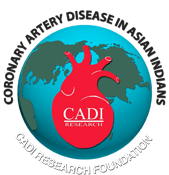Psychosocial Factors
- Depression, hostility, anger, and low social support are associated with heart disease, after controlling for adverse health behaviors, in most studies.1, 2 These risk factors are unfortunately increased in lower socio-economic groups.
- Contrary to common belief, type A personality is not associated with an excess of coronary artery disease (CAD).3 Moreover, the prognosis of CAD among type A persons is better than in type B patients.4
- The presence of any observed hostility at baseline was associated with a 2-fold increased risk of incident CAD over 0 years of follow-up. Compared with patient-reported measures, observed hostility is a superior predictor of CAD.5
- The death of a loved one can literally be heart-breaking, or at least heart-attack-inducing. The risk of a heart attack is more than 21 times higher than normal within 24 hours of losing a loved one and 4 times higher within a week.
Sources
1. O’Malley PG, Jones DL, Feuerstein IM, Taylor AJ. Lack of correlation between psychological factors and subclinical coronary artery disease. N Engl J Med. 2000;343(18):1298-1304.
2. Williams DO, Holubkov R, Yeh W, et al. Percutaneous coronary intervention in the current era compared with 1985-1986: the National Heart, Lung, and Blood Institute Registries. Circulation. Dec 12 2000;102(24):2945-2951.
3. Enas EA, Garg A, Davidson MA, Nair VM, Huet BA, Yusuf S. Coronary heart disease and its risk factors in first-generation immigrant Asian Indians to the United States of America. Indian Heart J. 1996;48(4):343-353.
4. Enas EA. The essence and nonsense of stress:The straw that breaks the camel’s back. AAPI Journal. 1996;8:47-48.
5. Newman JD, Davidson KW, Shaffer JA, et al. Observed hostility and the risk of incident ischemic heart disease a prospective population study from the 1995 canadian nova scotia health survey. J Am Coll Cardiol. Sep 13 2011;58(12):1222-1228.

